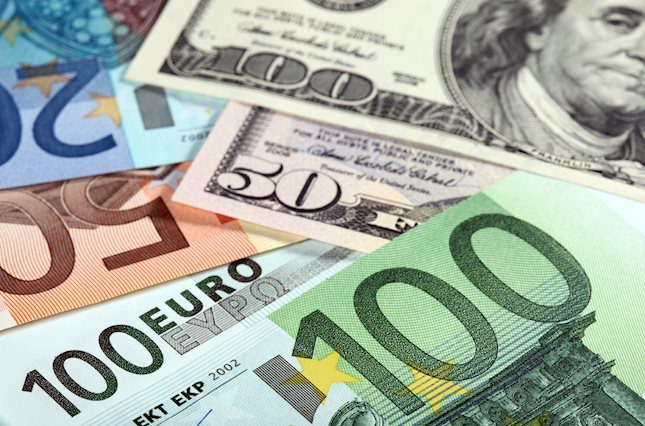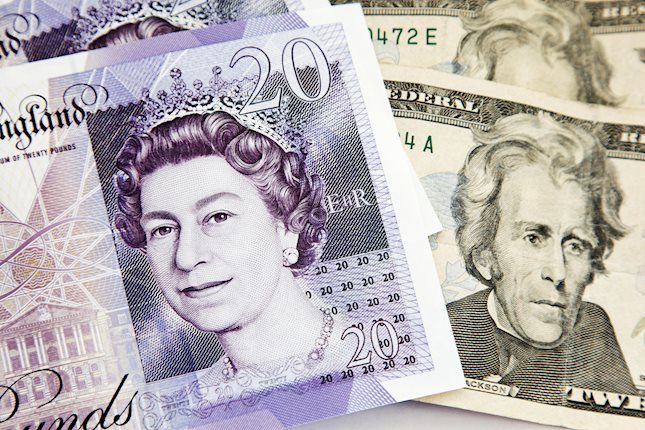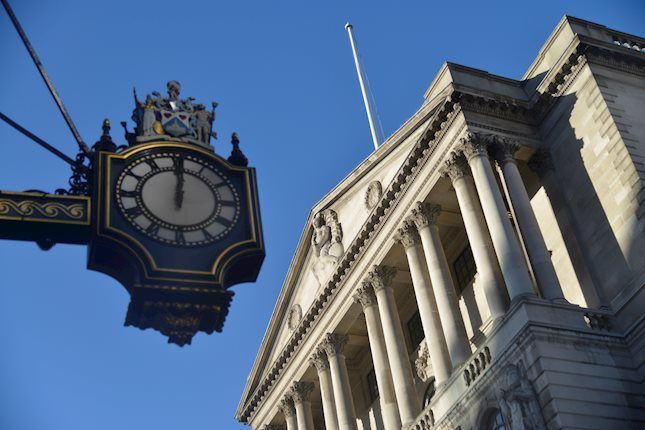- GBP/USD remains under selling pressure amid the Fed’s hawkish stance.
- The pair holds below the 50- and 100-hour EMAs on a four-hour chart.
- The oversold RSI condition indicates that further consolidation cannot be ruled out.
- The immediate resistance level will emerge at 1.2290; 1.2200 will be the critical support level.
The GBP/USD pair remains on the defensive below the mid-1.2200s during the Asian session on Monday. Market players await the release of the UK’s Gross Domestic Product (GDP) for the second quarter and the US highly-anticipated Core Personal Consumption Expenditure (PCE) Price Index data due on Friday. The major pair currently trades near 1.2242, gaining 0.02% on the day.
That said, the hawkish stance from the Federal Reserve (Fed) officials lifted the US Dollar (USD) against the British Pound (GBP). Fed Banks of Boston and San Francisco Presidents, Susan Collins and Mary Daly, emphasized that although inflation is cooling down, additional rate hikes would be necessary. This, in turn, might act as a headwind for the GBP/USD pair
According to the four-hour chart, GBP/USD holds below the 50- and 100-hour Exponential Moving Averages (EMAs) with a downward slope, which means further downside looks favorable. The Relative Strength Index (RSI) holds in bearish territory below 50. However, the oversold condition indicates that further consolidation cannot be ruled out before positioning for any near-term GBP/USD depreciation.
That said, the immediate resistance level for GBP/USD will emerge near the middle line of the Bollinger Band at 1.2290. The additional upside filter is located at 1.2354, representing the 50-hour EMA. The upper boundary of the Bollinger Band at 1.2383 will be the next barrier for the pair, en route to 1.2432 (the 100-hour EMA).
On the flip side, the lower limit of the Bollinger Band at 1.2200 will be the critical support level. Further south, the next stop of GBP/USD is located at 1.2178 (a low of March 28). Any intraday pullback below the latter would expose the next downside stop at 1.2128 (a high of March 16) and finally at 1.2100 (a low of March 17).
GBP/USD four-hour chart
Information on these pages contains forward-looking statements that involve risks and uncertainties. Markets and instruments profiled on this page are for informational purposes only and should not in any way come across as a recommendation to buy or sell in these assets. You should do your own thorough research before making any investment decisions. FXStreet does not in any way guarantee that this information is free from mistakes, errors, or material misstatements. It also does not guarantee that this information is of a timely nature. Investing in Open Markets involves a great deal of risk, including the loss of all or a portion of your investment, as well as emotional distress. All risks, losses and costs associated with investing, including total loss of principal, are your responsibility. The views and opinions expressed in this article are those of the authors and do not necessarily reflect the official policy or position of FXStreet nor its advertisers. The author will not be held responsible for information that is found at the end of links posted on this page.
If not otherwise explicitly mentioned in the body of the article, at the time of writing, the author has no position in any stock mentioned in this article and no business relationship with any company mentioned. The author has not received compensation for writing this article, other than from FXStreet.
FXStreet and the author do not provide personalized recommendations. The author makes no representations as to the accuracy, completeness, or suitability of this information. FXStreet and the author will not be liable for any errors, omissions or any losses, injuries or damages arising from this information and its display or use. Errors and omissions excepted.
The author and FXStreet are not registered investment advisors and nothing in this article is intended to be investment advice.
Recommended content
Editors’ Picks

EUR/USD struggles to hold above 1.0400 as mood sours
EUR/USD stays on the back foot and trades near 1.0400 following the earlier recovery attempt. The holiday mood kicked in, keeping action limited across the FX board, while a cautious risk mood helped the US Dollar hold its ground and forced the pair to stretch lower.

GBP/USD approaches 1.2500 on renewed USD strength
GBP/USD loses its traction and trades near 1.2500 in the second half of the day on Monday. The US Dollar (USD) benefits from safe-haven flows and weighs on the pair as trading conditions remain thin heading into the Christmas holiday.

Gold drops to $2,620 area as US bond yields edge higher
Gold struggles to build on Friday's gains and trades modestly lower on the day near $2,620. The benchmark 10-year US Treasury bond yield edges slightly higher above 4.5%, making it difficult for XAU/USD to gather bullish momentum.

Bitcoin fails to recover as Metaplanet buys the dip
Bitcoin hovers around $95,000 on Monday after losing the progress made during Friday’s relief rally. The largest cryptocurrency hit a new all-time high at $108,353 on Tuesday but this was followed by a steep correction after the US Fed signaled fewer interest-rate cuts than previously anticipated for 2025.

Bank of England stays on hold, but a dovish front is building
Bank of England rates were maintained at 4.75% today, in line with expectations. However, the 6-3 vote split sent a moderately dovish signal to markets, prompting some dovish repricing and a weaker pound. We remain more dovish than market pricing for 2025.

Best Forex Brokers with Low Spreads
VERIFIED Low spreads are crucial for reducing trading costs. Explore top Forex brokers offering competitive spreads and high leverage. Compare options for EUR/USD, GBP/USD, USD/JPY, and Gold.
-638312164124387293.png)